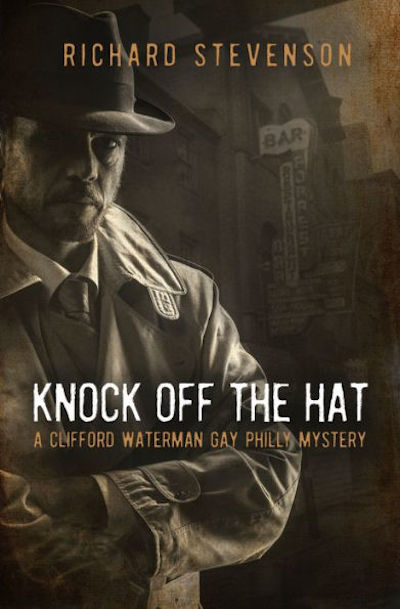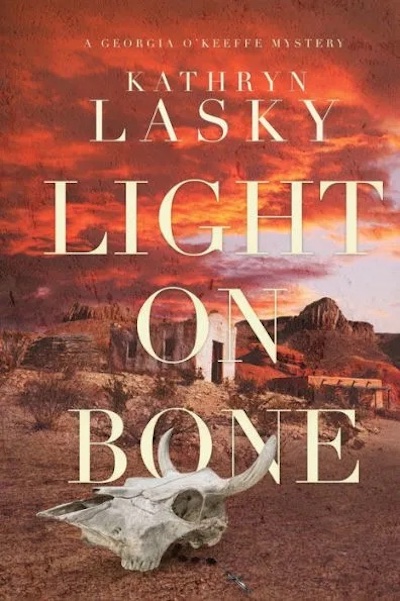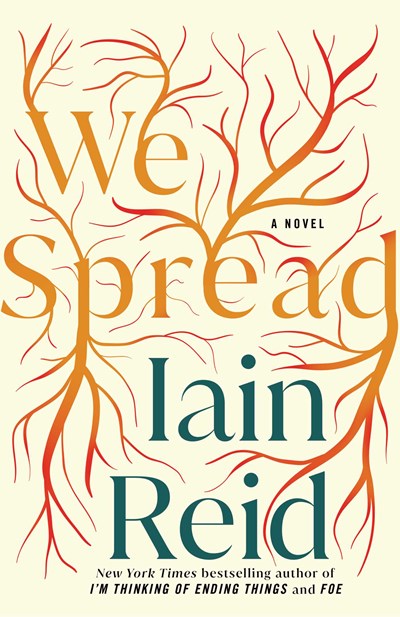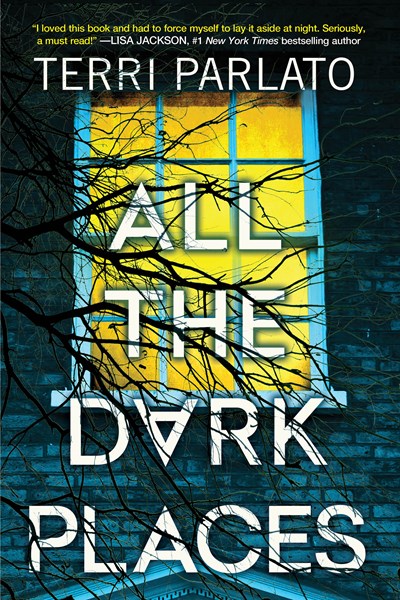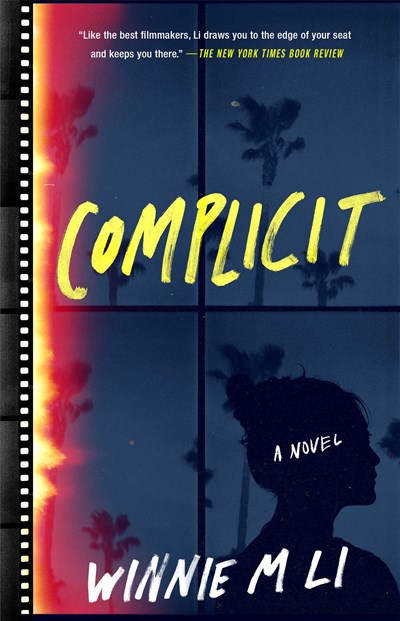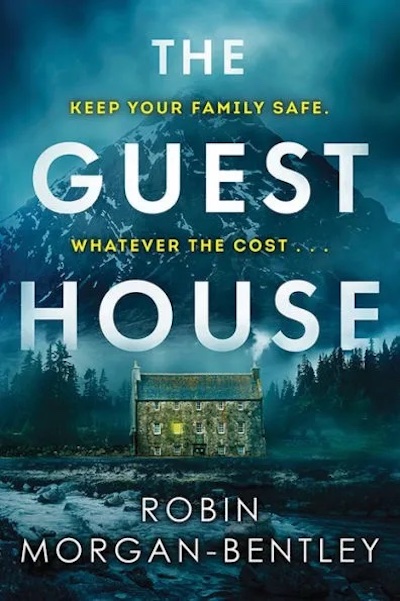It’s summer in post-World-War-II Philadelphia. The temperature is rising, and so too is the gay bashing, thanks to the police department and the City’s hugely corrupt judicial system. Tough-talking, but also hugely funny, Clifford Waterman—a former police detective who received a dishonorable discharge from the Army for being caught in the act in Cairo—is trying to make a go as a noirish PI. He’s hired to get the charges against a young man caught up in a bar raid dismissed and his $500 bribe reduced. Shake-downs of lesbians and gay men are nothing new, but Waterman begins to realize that the scope of the attacks and the size of the bribes are escalating hugely—along with the psychological damage and suicides that the publicity is causing among the LGBTQ community. Waterman’s search is a broad one, taking him throughout the greater Philadelphia area and up and down the social ladder. Sex and lovers, the relationships between Black and white queer men—expect the racist language of the day—and jazz and the blues all contribute to creating a memorable time and place. It’s great to have the author of the ground-breaking Don Strachey novels back with what we can only hope will be as prolific a series.
Review
It’s 2 p.m., and Evander “Andy” Mills is sitting alone at a bar, suicidal ideations dancing in his head. And for a good reason. A detective with the San Francisco police, his world was ripped apart when he was caught in flagrante delicto during a raid on a gay bar and thrown off the police force. This is, after all, 1952, and until now Andy has succeeded in keeping his sexuality locked away from the rest of his life. As he reaches for his fifth martini, he’s interrupted by a society woman who has a proposal for him: investigate the mysterious death of her wife, Irene Lamontaine, who died in Lavender House, the family estate. Did she say “wife?” Indeed she did. And off we go to Lavender House, home to the Lamontaine family, who own a soap dynasty, and where nearly everyone, from family members to the help, is absolutely queer. Their world is a fascinating one, as free as it is safe—until, that is, Irene was murdered. No reader who’s made it through the first chapter could ever think of abandoning this magical novel as it morphs into a sort of locked-room mystery with culprits everywhere. But as engrossing as the Lamontaines may be, it’s Andy who centers the narrative, and who emerges from the story—to use contemporary jargon—beginning to heal, both physically and emotionally. Here’s hoping this is just the beginning of Andy Mills’ investigations.
In real life, artist Georgia O’Keeffe began in 1929 to spend part of each year at Ghost Ranch in Abiquiú, New Mexico, and eventually moved there. When we join her at the ranch in 1934, she’s settled into an artistic rhythm in the desert landscape that so inspired her. O’Keeffe regularly drives into the desert to paint, enjoying a life that’s much looser than she lived with her rich, philandering husband back in New York. (In an amusing scene, the beat-of-her-own-drum-living O’Keeffe must genuinely have explained to her what a speed limit is.) On one of her excursions, the artist finds the vulture-attacked body of a priest, and the mystery only deepens when the man’s luggage contains decidedly unholy objects; it also has a map of the area with O’Keeffe’s house marked. As she investigates the strange man’s death, outsiders who visit Ghost Ranch, including Charles Lindbergh and his wife, Anne, add to the puzzles facing O’Keeffe. Neighbors’ lives, with their own difficulties, also feature prominently in the artist’s day-to-day life, with Lasky unobtrusively showing the twistedness of the Native’s subjugation. For example, white visitors who have spent their lives in this country have unfamiliar Native myths explained to them by reference to more familiar Greek myths and must be told not to take notes at a Native ceremony because “we are not museum artifacts.” While it’s apt for the time, the n-word features twice, and child sexual abuse is also a theme. Readers who enjoy this intriguing, emotional series debut could try another featuring celebrities: Erin Lindsey’s A Golden Grave, in which Nikola Tesla is a character; or for more New Mexico-set mysteries with a female sleuth, pick up Amanda Allen’s Santa Fe Revival series.
I read this enormously engaging foray into aging, truth, and memory that completely defies characterization in the course of an afternoon. Penny has lived for decades in the same apartment with her partner, who is now deceased. Both artists, he was the one with the career, she just paints. While aging is a struggle, Penny has a series of serious incidents: she fears she is being observed, thinks she hears someone else in the apartment, then has a fall that could have been fatal. Her superintendent intercedes and she’s moved to an assisted-living home in the country; supposedly, her partner arranged this before his demise. Initially skeptical, Penny comes to love the home, which houses just three other occupants and two staff members—the leader of whom seems to use an experimental method of care. Penny starts painting again, eats well, and makes a friend. But slowly she grows suspicious, and as time becomes more fluid than linear, and what seems like weeks could be years, she fears that she and the other residents are being hurt in some way. Or is she suffering from dementia, with reality and the imagination alternating to create some other state of being? By the author of the cult classic I’m Thinking of Ending Things, this book looks squarely at a future many of us will experience but that we seldom discuss. A great choice for book groups—readers will want to hear and discuss other reactions
Part police procedural, part domestic suspense, All the Dark Places provides mystery fans with the reading experience they crave. It’s psychologist Jay Bradley’s 40th birthday, and Molly, his wife, has planned a small get together in their suburban Boston home. By midnight, the other couples have left, Molly has teeter-totted off to bed, and Jay has checked into his stand-alone office in the backyard to work on his book. But when Molly wakes up, Jay isn’t in bed, the scent of coffee isn’t permeating the house, and the door to Jay’s office is wide open—with him dead on the floor, his neck horribly slashed. Enter Boston PD Detective Rita Myers, who leads the investigation and is convinced that Jay has been murdered by someone in their close circle. But why would one of their friends—affluent, happy, and seemingly complacent—murder everybody-loves-Jay? Parlato skillfully moves the story between Rita and the present day inquiry and Molly and what we discover is her horrible past. She also imbues the book with plenty of humanity—60-ish Rita has a bit of a love interest, Molly adopts a lovely dog to help keep her safe—and never once does the brisk narrative veer into the unbelievable. For fans of Shari Lapena and Mary Kubica.
Yeats’ haunting line about two sisters, “both beautiful, one a gazelle,” comes to mind when reading this story that deeply explores the decisions made by two women caught in the orbit of lecherous Hollywood men. Our narrator, Sarah Lai, and her boss, Sylvia Zimmerman, are similar to a point. They’re both striving film producers, with Sylvia ahead by years when she hires Sarah, a nervous ivy-league graduate whose parents run a restaurant. They both hate what women endure in the industry, from being passed over in favor of less-talented men to navigating those men’s sense of sexual entitlement. While they ruefully believe that “you have to do what you have to do” if you still want a job, it’s in their reactions to this rule that the women diverge. Via flashbacks from Sarah’s regret-filled current life teaching film at a B-list school, we visit her #metoo years as told to a journalist who’s writing an expose of that time. We know from the start that something untoward happened, but Li (Dark Chapter) reveals the facts in a tantalizing slow drip. The shock and dread build, helped along by lines such as “His British accent slithers out at me.” For those who’ve lived #metoo, you’ll find your experience put to paper, and for those who think it’s exaggerated, you might finally get it.
Lovers of classic mysteries will be familiar with the locked-room trope, in which a finite set of characters is stuck in one place with a murderer in their midst, à la Murder on the Orient Express. Here the “room” is the real northern Irish town of Inishowen, which is cut off from the outside world when a month’s worth of rain falls in 24 hours, with all roads and bridges leading out of town destroyed by floods. The townspeople come together well enough, including the protagonist, solicitor Benedicta (Ben) O”Keefe. When readers last met Ben,, in Murder at Greysbridge, she was heading off to New York for six months, partially to get a break from her confused relationship with a local police sergeant (he hasn’t gone anywhere and the fate of the on-again, off-again relationship is an enjoyable subplot). She returns to find her hometown awash but her small law firm ticking along nicely, even if her replacement didn’t know how to leave any surface paper-free. Not moving along so well is a charity cycling event that’s supposed to run from nearby Malin Head, Ireland’s most northerly point, to Mizen Head, it’s most southerly, with weather keeping the cyclists restlessly bound to Inishowen. Then the rain brings a more macabre result: on a late night call, the local vet’s car is hit by a falling body. Ben once again gives her Sergeant beau a run for his money in the investigation stakes, uncovering family secrets, local scandals, and contentment with her Inishowen lot along the way. Lovers of grittier cozies are the audience for this one.
Take a trip back to early 2000s Brooklyn in this work of literary noir that lurks on the edges of the art world. Noir novels present an investigator who’s down on his or her luck, and here it’s Dwyer Murphy—yes, the main character has the same name as the author—a former corporate lawyer who couldn’t take the hours, the billing in six-minute increments, or the colleagues. Now he’s going it alone, but he needs the odd lucrative job (even the odd shady one) to stay afloat. He takes a sad case: one party in an acrimonious divorce wants him to try to buy books off her husband; she suspects that he’s selling some of her valuable, inherited volumes and needs the proof. Two things are strange: the “books” are esoteric, early American legal pamphlets such as “Confessions of Tom Mansfield who Corrupted and Murdered His Servant,” which Dwyer had no idea were collectibles, let alone worth taking risks over. And then he faces being sued by the wife because he’s ruining her husband’s reputation. There’s no end to the rich-people twistedness here, which is both incredible and all-too believable. That’s enjoyable enough, but best is the slow-burn, quirky trip with the steadfast Dwyer, who puts one foot in front of the other until he figures out what’s going on. A kinda, sorta Thelma-and-Louise ending caps the saga, but leaves room to wonder what’s next for the lovable Dwyer.
Just take all those accolades used for thrillers—unputdownable, twisty, dark, chilling, vivid, explosive, intense—and heap them on. Because this book is that good. That credible. And that terrifying. Londoners Victoria and Jamie take a brief vacation in Cumbria. Victoria’s due to have a baby in a few weeks, and the trip is a last hurrah before parenthood consumes them. They’re booked into a remote guest house—what we’d call a B&B—and are absolutely charmed by the older couple that runs it. But when they wake up the next morning, the couple is missing, the doors and windows locked. Cell phones? Gone. Car keys? Ditto. Then Victoria realizes that the mild contractions she has been experiencing are becoming much more intense and that the baby is on its way. That’s all you’ll get out of me when it comes to plot, but be warned: as soon as you think you know what this story is about, Morgan-Bentley flips the narrative, providing an even scarier turn. Unusual for crime fiction, which rarely includes characters with disabilities, Jamie has cerebral palsy, and his challenges with movement and balance give the book an even greater realism. While this novel is perfect for fans of Ruth Ware, Emma Rowley, and Lisa Jewell, really, it’s in a class by itself.
Everyone’s battling extremes in Mo’s latest Sweden-set psychological thriller-slash-police procedural. Thomas Ahlström loves his toddler son, Hugo, but has a daughter he abandoned when she was the boy’s age. That daughter, Lykke, starves herself for days on end just to have something she can control, but tenderly cares for the shadow lilies growing her in garden. Detective Hanna Duncker, back in her second installment in the series (after The Night Singer), is as determined a cop as they come but is sick of the job’s endless “death, lies, and families.” More of that is on the cards, though, when she and her partner must investigate the disappearance of Thomas and Hugo. Suspects and secrets abound, as do red herrings, and readers will be rapt as one by one, the innocent—of this crime, anyway—drop away and Hanna and Erik face danger over and over to get to the heart of a violent puzzle. At the same time, Hanna is tantalized by possible new details on an old killing; her father was convicted, but now a contact in that case wants to talk. We end on a cliffhanger—bring on #3!

